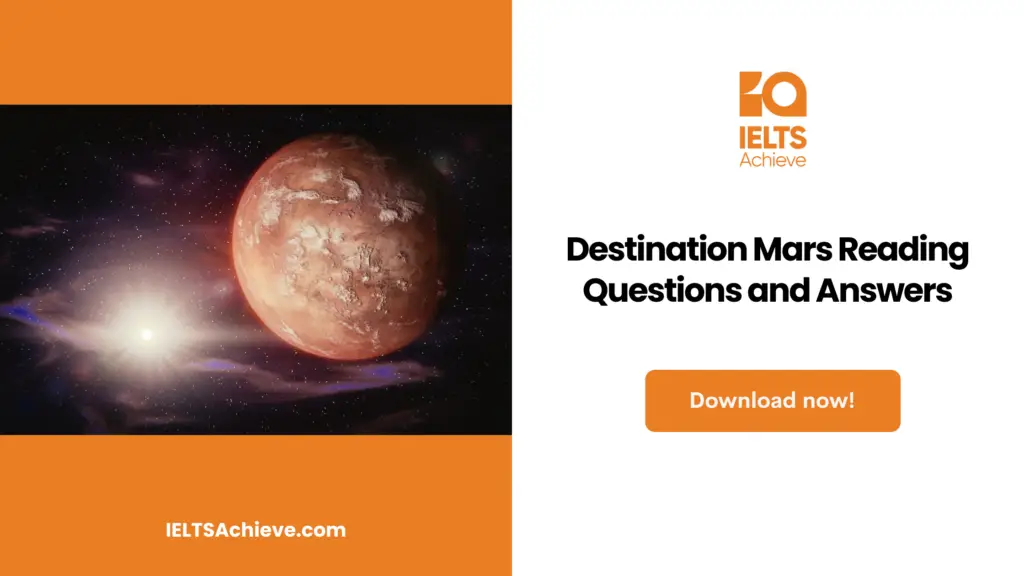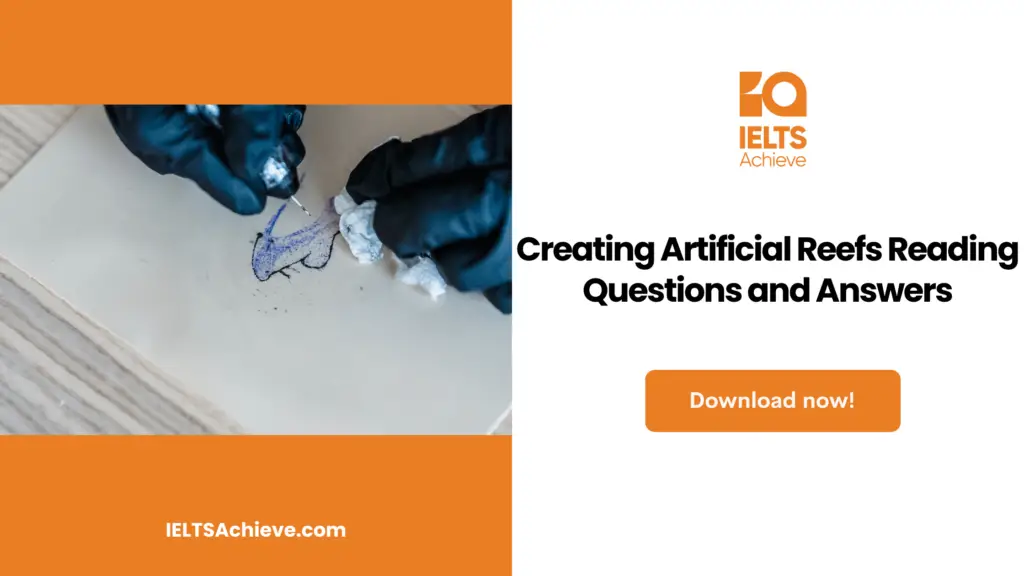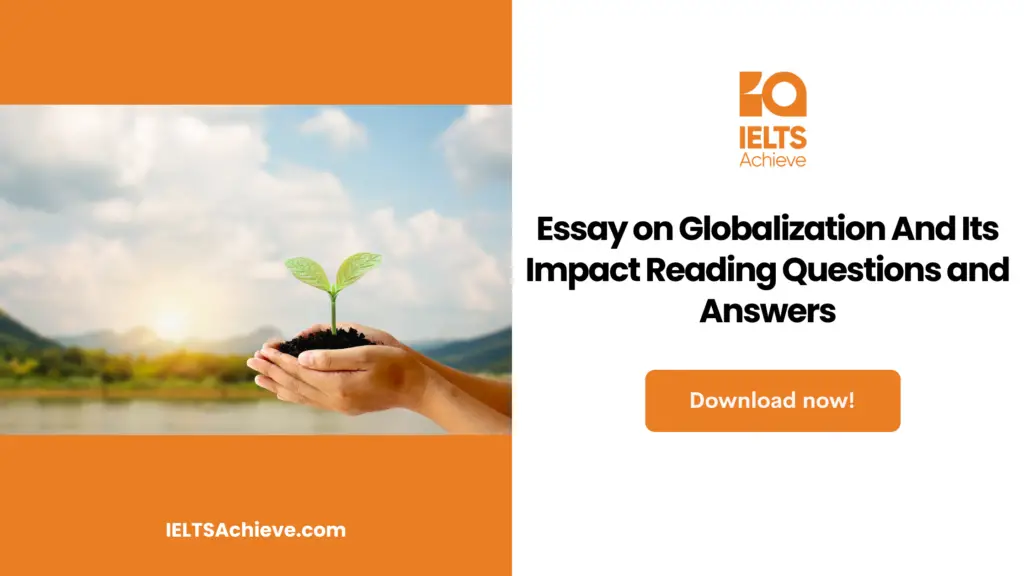The Blog post contains the following IELTS Reading Questions:
- IELTS Reading Table Completion
- IELTS Reading True/False/Not Given
Stay informed and prepared for success – Explore our comprehensive Reading Test Info page to get valuable insights, exam format details, and expert tips for mastering the IELTS Reading section.
IELTS Reading passage –Destination Mars

Destination Mars
Mars is the closest potentially habitable planet. It has solid ground, protective surface features, a thin atmosphere, more closely mimics the gravitational and lighting conditions on Earth, and is reachable – just. Most importantly, studies have found that this planet has vast reserves of frozen water, and there are other basic minerals as well. In contrast, the closest heavenly body – the moon – is dusty, barren, hostile, and dark. Settlement of the moon would be much easier, but since there are no resources there, it would ultimately be more costly and of little use. If there is any extra-terrestrial site where humankind will ultimately settle, it must be Mars.
Yet this planet is much more distant than the moon, making the logistics daunting. Food, water, oxygen, and life-support systems for such a journey would be too heavy for current rocket science. Technological innovations would be necessary, and the timing of the trip absolutely critical. The different orbits of Mars and Earth mean that they most closely approach each other every 26 months, but this event itself fluctuates on a 15-year cycle. This means that only once in that time does a launch window open. That is quite few and far between, yet missions must necessarily leave at these times.
The trouble is, even then, the journey to Mars and back would take over a year, and the human body suffers profoundly when left in micro-gravity for that length of time. Without the need to stand, there is almost no flexing or pressure on the back or the leg muscles. These gradually shrink and weaken, while bones lose their density, and lungs their aerobic capacity. When left long enough in space, astronauts are unable to function properly. Yet these people will need their full physical strength and alertness for the many operational duties required. These include docking in space, approaches and landing on Mars, remote manipulation of machines, and dealing with any emergencies that arise.
Another hazard of such duration in a hermetically sealed spacecraft is disease. Human bodies constantly shed waste material (sweat, skin-flakes, hair, moisture, mucus, and the products of digestion), all of which allow microbes to breed prolifically. Coughs and sneezes spray fluids into the air, which, without gravity to pull them down to surfaces, simply float as airborne particles in those cramped confines, causing easy microbial exchange between crew members. Bacterial infections and fungal attacks can be prevalent, and human immune systems are weakened in micro-gravity. Thus, a long mission to Mars would require the best air-cleansing system available, rigorous disinfecting and hygiene procedures, plus an excellent supply of antibiotics.
On reaching Mars, the problems only increase. Staying on the planet for any significant length of time will be difficult. In the absence of a thick protective atmosphere or magnetosphere to burn up or deflect objects, respectively, astronauts will be exposed, to potentially lethal UV radiation, micro-meteoroids, solar flares, and high-energy particles, all of which regularly bombard the surface. Spacecraft and land-based capsules will need special shielding, which adds to the weight and expense. Construction of living quarters will be time-consuming, difficult, and dangerous. For a longer stay on Mars, the only solution, it seems, is to go underground.
One of the most interesting discoveries in this respect is of possible cave entrances on the side of Arsia Mons, a large Martian volcano. Seven such entrances have been identified in satellite imagery, showing circular holes resembling the collapse of cave ceilings. The hope is that these may lead to more extensive cave formations, or perhaps lava tubes, offering the protection necessary in such a hostile terrain. An additional benefit is the potential access to vital minerals, and most importantly of all, the possibility of frozen water. These sites therefore open up the possibility of independent and permanent settlement on this planet.
The most exciting option is to attempt that on the very first trip – in other words, making it a oneway journey. The advantage is that the duration of space travel is immediately halved, reducing the technological, biological, and financial challenges. This very strong argument is somewhat offset by the difficulties in establishing a permanent presence, as well as the necessary ongoing commitment to it – for example, in the delivery of food and supplies via unmanned spacecraft. Similarly, the psychological effects on these pioneers of permanent isolation from Barth and its community, as well as being crowded into confined Martian living quarters with the same companions, raise issues of whether such a settlement is humanly feasible.
This begs the question of why undertake such missions at all. The answer, according to proponents, is that it is our destiny. Throughout history, explorers have regularly embarked on journeys in the full knowledge that death may await them, or that even if they succeeded, their health and wellbeing would be severely compromised. And today, people regularly practise extreme sports, or work in dangerous occupations, all of which significantly lower their life expectancy. The risks involved in being a Martian pioneer are no different, and so, it is argued, there is no reason why they should deter us now.
Enhance your skills in identifying information as True, False, or Not Given. Click here to discover expert strategies and techniques for mastering this question type in the IELTS Reading section.
Questions 27-30
Do the following statements agree with the information given in Reading Passage One? Write
TRUE if the statement agrees with the information
FALSE if the statement contradicts the information
NOT GIVEN If there is no information on this
27. The greatest advantage of Mars is that it has many basic minerals.
28. Settlement of the moon would be more expensive.
29. The magnetosphere burns up objects.
30. A one-way expedition to Mars is better.
Enhance your skills in identifying information as True, False, or Not Given. Click here to discover expert strategies and techniques for mastering this question type in the IELTS Reading section.
Questions 31-35
Complete the table. Choose NO MORE THAN TWO WORDS from the passage for each answer.
| Problems involved in travelling to Mars | Associated fact |
| inadequate rocketry | scientists would need (31)……………………. |
| infrequent (32)…………………. | once every 15 years |
| effect of space on (33)………………. | bones (34)………………… |
| disease | lack of gravity facilitates (35)…………………… |
Boost your performance in Summary, Notes, Table, and Flowchart Completion tasks. Click here to explore our detailed guide and learn how to effectively complete summaries, notes, tables, and flowcharts in the IELTS Reading section.
Questions 36-40
Give TWO examples of the following categories. Choose NO MORE THAN TWO WORDS from the passage for each example.
| Categories | Example | Another example |
| Human attributes needed for important space activities | physical strength | (36)………………… |
| Specific medical conditions which could occur in space | (37)…………………. | fungal attack |
| Solid objects which could strike astronauts on Mars | (38)………………. | high-energy particles |
| Useful substances inside Martian caves | vital minerals | (39)…………………. |
| High-risk activities happening now on Earth | extreme sports | (40)……………… |
Boost your performance in Summary, Notes, Table, and Flowchart Completion tasks. Click here to explore our detailed guide and learn how to effectively complete summaries, notes, tables, and flowcharts in the IELTS Reading section.
Unlock your full potential in the IELTS Reading section – Visit our IELTS Reading Practice Question Answer page now!
Recommended Questions:
Renewable Energy IELTS Reading Question with Answer

We hope you found this post useful in helping you to study for the IELTS Test. If you have any questions please let us know in the comments below or on the Facebook page.
The best way to keep up to date with posts like this is to like us on Facebook, then follow us on Instagram and Pinterest. If you need help preparing for the IELTS Test, join the IELTS Achieve Academy and see how we can assist you to achieve your desired band score. We offer an essay correction service, mock exams and online courses.

